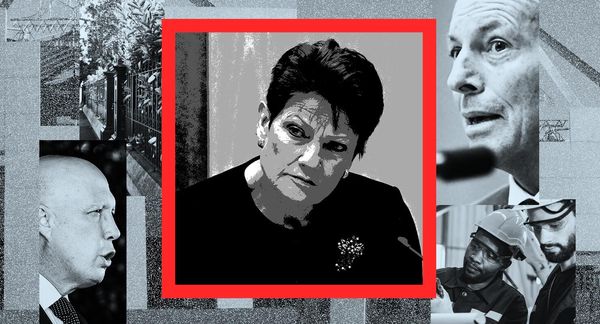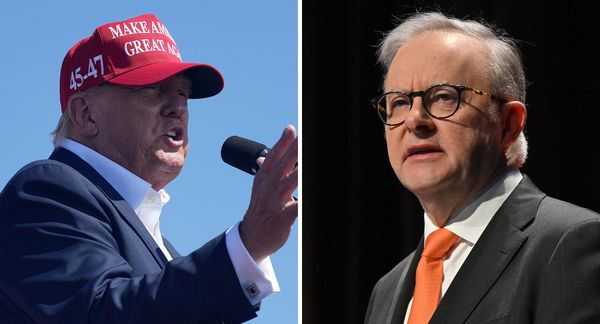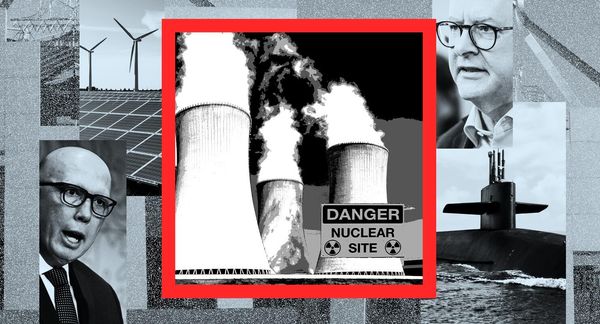
This article is an instalment in a new series, Where to for real Liberals?, on the future of the Liberal Party under Peter Dutton.
At first glance, Opposition Leader Peter Dutton’s proposal to build seven government-owned nuclear power stations is a perplexing move for a party that boasts the name liberal. Unless, that is, you understand that the liberal in Liberal Party of Australia is something of an empty signifier these days.
This is because of two significant shifts that have occurred in the landscape of the right in Australia. The most passionate supporters of individual freedoms and free market capitalism are now found in the Libertarian Party, recently rebranded from the Liberal Democrats, a rebranding exercise that itself speaks to the changed meaning of the term liberal in contemporary Australia.
The Libertarian Party’s membership swelled following the experience of COVID-era lockdowns and vaccine mandates imposed by Labor and Liberal governments alike. The party has picked up (classical) liberal refugees from the Liberal Party looking for a political option genuinely committed to small government and individual freedoms. Meanwhile, conservatives in the Liberal Party have echoed trends in the US, as they so often do today, and embraced economic nationalism, with its priority for national sovereignty in strategic industries, job and wage protection for local workers (particularly from high rates of migration), and the protection of industries located in regional Australia threatened by the predation of a globalist illuminati that worships the pagan god of free trade.
This type of economic nationalism has arguably long been part of the ethos of the Liberal Party’s coalition partner, the National Party, and is a strong current in the right-wing populism exemplified by One Nation, which is squeezing the Coalition from the Right, particularly in Queensland. Conservatism’s return to economic nationalism is a natural byproduct of its profound disenchantment with liberalism that emerged following the breakdown of the uneasy tactical marriage of convenience formed between libertarians and conservatives during the Cold War (classical liberals in America adopted the label libertarian in the 1950s to distinguish and differentiate themselves from big government New Deal liberals, a linguistic change that is just now beginning to find fertile ground in Australia).
Conservatives, during the era of fusionism, paid lip service to the orthodoxies of free market capitalism, but not with the conviction of libertarians. The magical wonder of the invisible hand was always subordinate to conservatism’s true interest in family, tradition, national identity, authority and order. In the absence of the unifying evil of Soviet totalitarianism, there was little left to unite conservatives and libertarians. Moreover, each party has arrived at radically divergent interpretations of the problems currently confronting the West.
Conservatives are convinced that liberalism is responsible for all that is wrong in the West by virtue of the fact that it unleashed the human being’s inner narcissistic spirit from the civilising constraints of religion and tradition, leading to the destruction of the family, the pervasive loss of social bonds and meaning, and the wholesale degeneration of culture. Conservativism is thoroughly post-liberal now, often openly and avowedly so. One need only consult the cottage industry of books written by conservative thinkers detailing the evils of liberalism to see this phenomenon on display.
Libertarians, conversely, attribute all that is wrong in the world to the failure to take liberalism to its logical, radical end. In their view, liberalism has been hopelessly compromised and corrupted by statism, with its bloated and inefficient government, crony capitalism and woke cultural authoritarianism. This is why they have abandoned the term liberal for libertarians. Government just needs to get out of the economy and out of people’s personal lives and a golden age of prosperity is sure to follow.
Conservatives, with their undisguised statism, are now part of the problem, not the solution, as far as libertarians are concerned. If one looks beneath the surface to Australia’s political fringes, one will notice the growing populism of anarcho-capitalism among young libertarians of the right, evidence of the radical transformation of the staid, stuffy and, ultimately, conservative liberalism of the Menzies-era.
This just leaves the so-called “moderate” liberals of the Liberal Party. To conservatives and libertarians alike, they appear to be unprincipled shills virtually indistinguishable from the modern Labor Party, with its woke social values and neoliberal economic predilections, albeit sold with caring and empathetic rhetoric (neoliberalism in the Australian context simply means a mixed economy comprised of some deregulation and a lot of state intervention).
Moderate liberals differ from Labor merely around the edges, and more with an eye to identifying prudent points of safe policy difference for the purpose of winning elections. They represent the “mainstream” of the party, which is to say, just a smidge to the right of the Labor Party. Their goal is to orbit the sun of middle Australia. They have little interest in ideology.
So, Dutton’s nuclear turn is perfectly coherent in a party dominated by conservatives committed to economic nationalism, that has lost its classical liberals to Australia’s emerging libertarian movement and which contains moderate liberals looking for some modest product differentiation from Labor.
What is the future of the Liberal Party in Australia? Let us know your thoughts by writing to letters@crikey.com.au. Please include your full name to be considered for publication. We reserve the right to edit for length and clarity.










